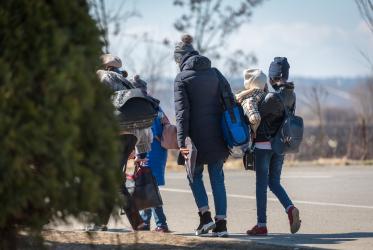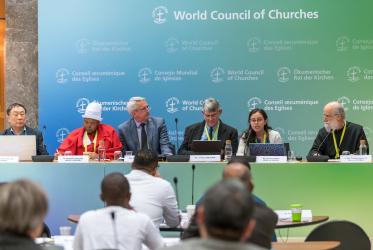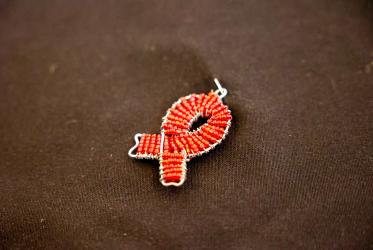State, religious and public organizations discussing the problems of HIV/AIDS - prospects of cooperation
Final document
Moscow, Russian Federation, 18-19 April 2005
We, the participants of the international conference met for two days to discuss the wide range of problems involved in cooperation between the state structures, religious and public organizations in overcoming the spreading of the HIV/AIDS epidemic.
As a result of the submitted reports and statements, as well as exchanges of opinions and discussions we have come to the following conclusions:
-
The pandemic HIV/AIDS and the threat it presents demands the close attention of the world community and the implementation of serious measures by states and all responsible forces of society.
-
The current situation of HIV/AIDS spread in Russia is alarming, and has got the characteristics of an epidemic.
-
While appreciating the efforts of the Russian Federation, and both International and Russian nongovernmental organizations, to solve the problems of HIV/AIDS, and to address the issues of prevention, rehabilitation and social adaptation, we believe, that both the state and society have not exerted sufficient effort considering the level of threat HIV/AIDS presents.
-
This and the fact that the HIV epidemic affects primarally the young and economically active population, and demands enormous expenditure for treating those infected, makes this problem a paramount threat to the development and existence of society and to its national security.
-
5. The primary driving forces of the epidemic can be accounted to the corruption of moral principles within society, destruction of fundamental spiritual values, growing indifference, cruelty and social alienation to those affected.
-
The HIV/AIDS epidemic can be effectively counteracted by strengthening spiritual and moral norms in society, through education and instruction. It is necessary to overcome the oversimplified patterns of sexual education adopted as an exclusive means of education youth in the prevention of HIV/AIDS. Children should be brought up from an early age to respect family values and traditions, to develop responsible gender relations, to reject of risky behaviour including drug use. They should also be taught the ideals of public spirit, social service, fidelity, mercy and compassion.
-
The magnitude of problems and challenges, encountered by both state and social organizations as they face the HIV/AIDS epidemic, dictates a unified effort by all elements of society to find workable solutions. Religious organizations are an important component of civil society that contribute uniquely to this work. Partnerships dealing with social problems through dialogue, the combining of resources and institutional cooperation of religious, state and social organizations is essential to effectively combat the spread of HIV/AIDS.
-
It is necessary to develop cooperation between religious organizations, the state and society in moral education and instruction of children and youth; to intensify educational work in the prevention of HIV and drug addiction among children and teenagers and to work jointly with public and state organizations through educational and training programs to prevent HIV/AIDS.
-
The mass media, especially television, can become an important means of combating the spread of HIV/AIDS. Informational campaigns, on the prevention of HIV/AIDS and drug addiction, should be developed according to ethical norms in order to be effective. The mass-media should adopt a responsible attitude, contributing to the formation of spiritual and moral values in society.
-
The major areas of work should include the following:
-
Supporting local projects to establish counselling services and telephone hotlines on HIV/AIDS;
-
Promoting social rehabilitation and advocacy for people living with HIV/AIDS;
-
Legal advice to HIV-positive people and their relatives; psychological care to people living with HIV/AIDS (in medical institutions - hospitals, clinics, maternity houses; in jails etc), and also to their relatives;
-
Care for orphans who have HIV-infected mothers, helping them to integrate fully into society;
-
Home nursing and care of HIV-infected people especially in the terminal stage of illness; work in penitentiaries, especially with HIV-positive prisoners.
-
Organizing work with people living with HIV/AIDS in monasteries, parishes, communities, etc.
-
Participants of the conference call upon religious organizations to engage in intensive cooperation with one another to combat the spread of HIV/AIDS and to show concern and care for those living with HIV/AIDS.
-
Participants of the conference appeal to the Inter-Religious Council of Russia to include this problem within the program of its work.
-
Participants of the conference appeal to the state and society to actively interact with religious organizations to counteract the HIV/AIDS epidemic. It is important that this cooperation should involve the community of people living with AIDS.
-
Coordination and development of Inter-Confessional interaction and cooperation among religious organizations is vital to counteract the spread of HIV/AIDS and to support PLWHA, to achieve this it is desirable that a continuation committee be set up to follow the conference. The leaderships of concerned religious organizations and confessions are asked to support this initiative.





